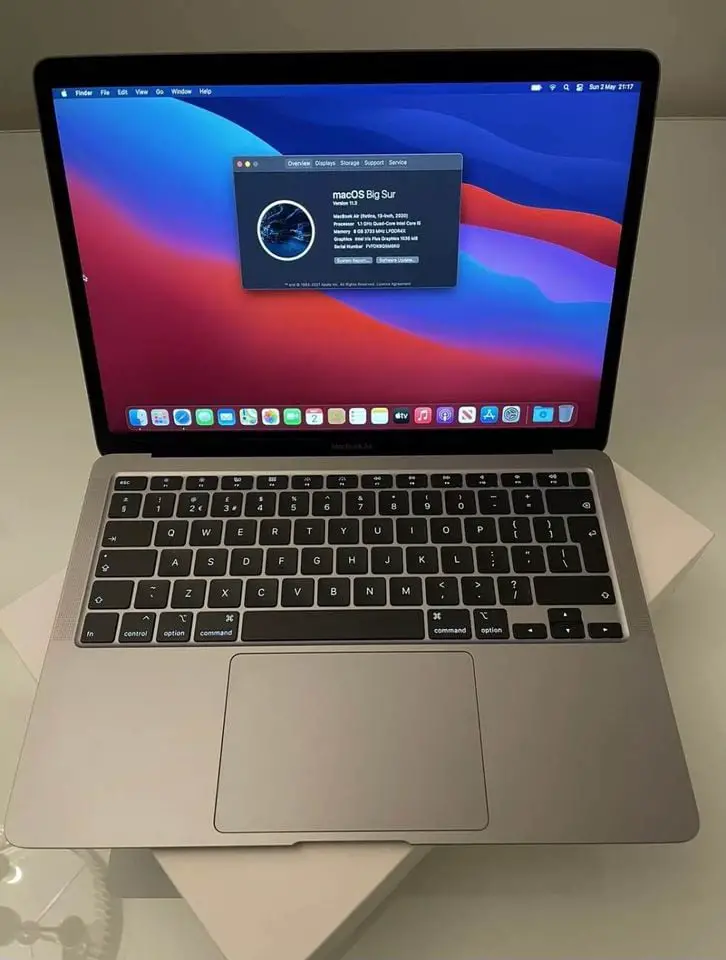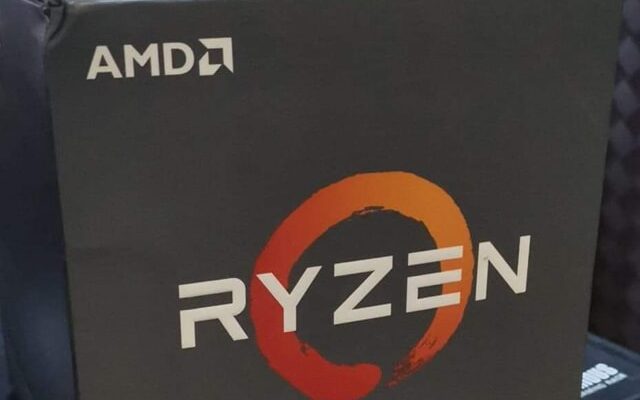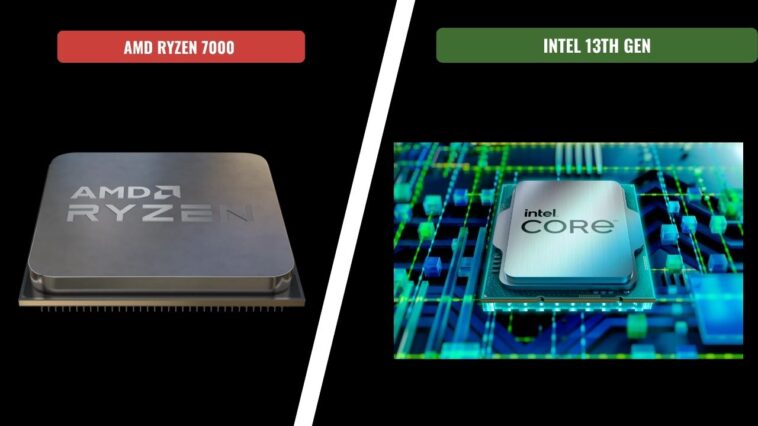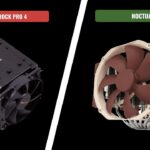Table of Contents
Intel Raptor Lake, the company’s next generation of desktop and laptop processors, is set to be unveiled at the end of this year.
This is the 13th generation of Intel Core CPUs, succeeding the Alder Lake chips. Intel, like Apple Silicon, intends to expand on the hybrid design unveiled in 2021 by incorporating both highly performant and energy-efficient cores.
Raptor Lake is based on the same Intel 7 (10nm) production node as Alder Lake, but it is expected to provide a 40% increase in multi-threaded performance.
Continue reading to learn everything there is to know about Intel Raptor Lake and be sure to bookmark this page for future reference.
While AMD’s Ryzen 7000 processors will be available in 2022, two years after the Ryzen 5000, after two years of development. Despite the fact that AMD has spent a significant amount of time developing laptop processors, Intel’s 12th Gen Alder Lake chips outperform AMD’s Ryzen 5000 series in terms of performance and functionality. The Ryzen 7000 chips are expected to require extensive upgrades before they can re-enter the conversation about the best gaming CPUs, and so far, this appears to be the case.
AMD has yet to reveal the Ryzen 7000 in its entirety. We don’t know how much the CPUs will cost to begin with, but we do know when the first batch will arrive. From supported features and motherboard chipsets to new Ryzen 7000 specifications, these next-generation components will be gathered here for the foreseeable future.
Release Date
After months of speculation, Intel has confirmed the Raptor Lake desktop processors’ release date.
According to renowned leakers such as Moore’s Law is Dead and @momomo mu, Raptor Lake could launch in Q3 2022, between July and September of this year. AMD’s Ryzen 7000 processors will be available in September 2022, nearly two years after the Ryzen 5000 series first appeared in October of that year. AMD Ryzen 7000 processor.
Specifications

In comparison to AMD’s previous efforts, the Ryzen 7000’s hybrid big-and-small core design isn’t as revolutionary as Alder Lake’s. High-performance processors like the Ryzen 5 5600X will be able to run on up to 16 new 5nm chips, which will replace the Zen 3 cores that power them now. AMD’s Zen 4 cores will be the fastest yet in terms of stock clock speeds. At Computex 2022, he demonstrated a Ghostwire: Tokyo demo on an unknown Ryzen 7000 CPU with clock speeds up to 5.55GHz. Intel’s fastest desktop processor is the Core i9-12900KS
The typical L2 cache size on the Ryzen 7000 is expected to be doubled to 1MB per core, and while L2 cache is significantly smaller than L3, it has a higher read priority. When combined with faster clock speeds, we could see significant performance gains. Despite AMD’s claims that Ryzen 7000 hardware will deliver 15% better single-core performance than Ryzen 5000 hardware, the company has yet to release any gaming benchmark data to back up these claims.
Despite the fact that Alder Lake processors will use a different manufacturing node, Intel Raptor Lake chips will use the same process node. It is based on a process node of 10 nanometers, according to the specifications.
READ MORE: RTX 2060 Vs RTX 3060: Which Is The Best Performer?
AMD Ryzen 700
In contrast, AMD has confirmed that the Ryzen 7000 CPUs will be manufactured on TSMC’s 5nm node. Using smaller nodes allows processor manufacturers to pack more transistors into a smaller area, giving AMD an advantage. Intel, on the other hand, is quick to point out that processor performance is no longer solely determined by process node size.
Raptor Cove will be added to replace the Golden Cove cores, which will be phased out. However, Intel is likely to stick with the same E-cores that were used in Alder Lake.
‘How many cores will Intel include in Raptor Lake processors?’ Raptor Lake, Intel’s new 24-core, 32-thread processor, was already unveiled. In comparison to the current Intel Core i9-12900K processor, which has 16 cores and 24 threads, it appears that Intel intends to increase the number of cores and threads in the future.
Features

The Ryzen 7000 series appears to be making up for the lost time by supporting technological advances made since the Ryzen 5000 was first released in 2013. In the case of DDR5 memory, for example, I wasn’t impressed with how it performed when compared to DDR4 on an Intel 12th Generation chip, but it may follow DDR4’s trajectory of starting slow and gradually becoming much faster (not to mention more affordable) over time. AMD has not stated whether the Ryzen 7000 will support both DDR4 and DDR5 memory. Please return here if I receive a satisfactory response from them.
Igor’s Lab, on the other hand, has apparently revealed the power requirements for Intel Raptor, which show three different TDP (Total Design Power) levels of 125W, 65W, and 35W, respectively. According to the leaks, Intel’s Raptor Lake processor outperforms AMD’s Ryzen 7000 processor, which has a TDP of 120W.
As a result, you may not need to replace your motherboard to run Intel Raptor Lake on an Alder Lake processor. The new processors, like the previous iteration, will be able to use DDR5 RAM.
AMD Ryzen 7000 Motherboards, Sockets, And Chipsets
AMD has relied on the AM4 socket since the first Ryzen CPUs were released in 2017. AMD has confirmed that all AM4 CPU coolers will work with AM5 Ryzen 7000 CPUs, despite the fact that the Ryzen 7000 processors require the new AM5 socket.
Even if you do not require a new cooler, you will almost certainly require a new motherboard. New chipsets will be required to fully utilize the Ryzen 7000 CPUs. The ultra-enthusiast X670E, high-end X670, and mid-range B650 have all been released. As with Ryzen processors, the X670E and X670 chipsets will include more advanced capabilities and overclocking controls.
AMD Ryzen 7000 vs Intel 13th Gen: Final Verdict
Although gaming benchmarks will be available soon, the Ryzen 7000 CPU has yet to appear in any performance database or be acquired by a third party.
However, keep in mind that these speculative specifications and performance metrics only apply to desktop processors. There is currently no information available about the laptop models, which are expected to be released in 2023. We’ll keep you updated as more information about Intel Raptor Lake and AMD Ryzen 7000 becomes available.
ALSO READ: AMD Ryzen 9 5900x VS Intel Core i7 12700k Comparison!





